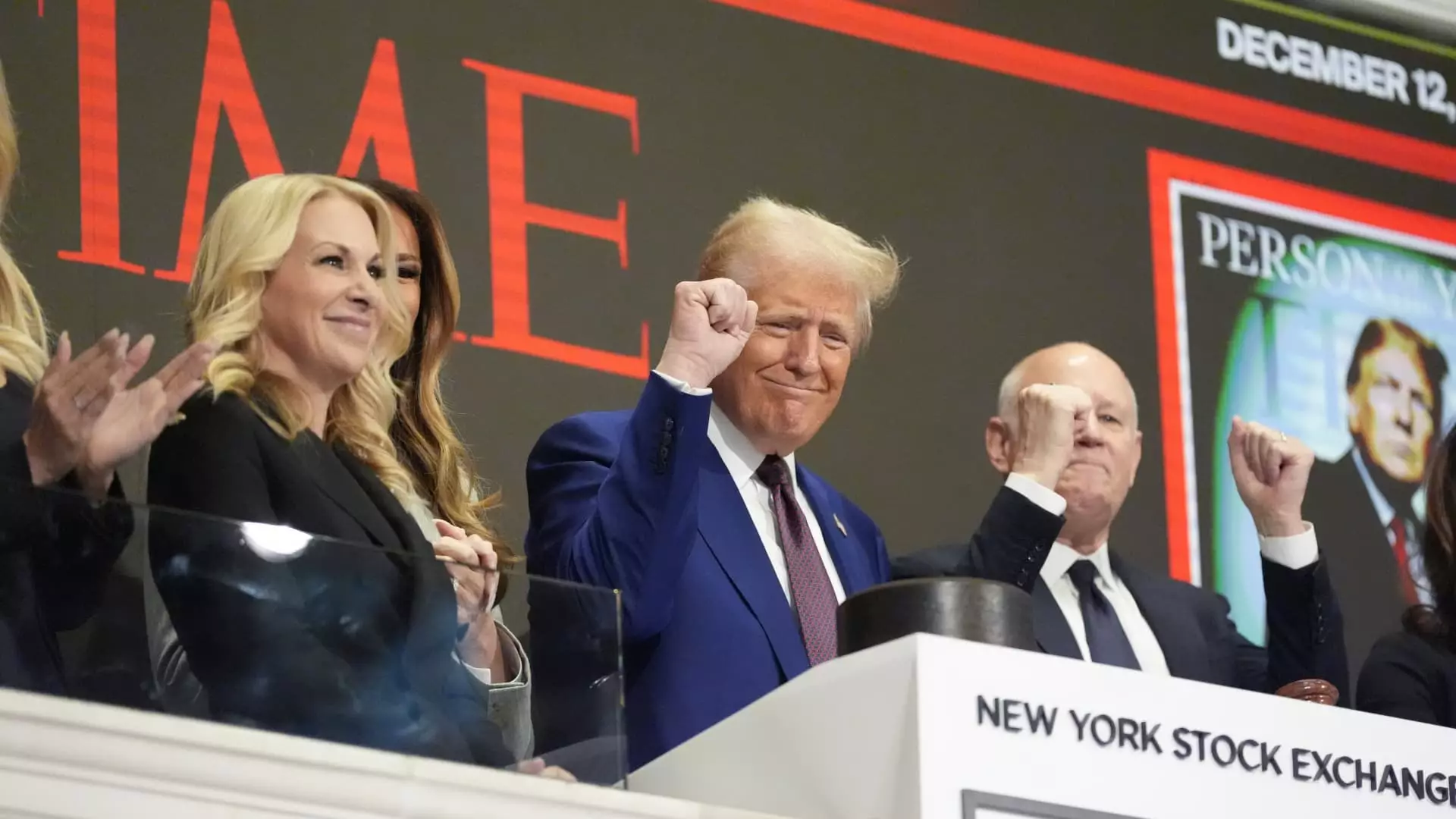On a notable Thursday morning, President-elect Donald Trump embraced a moment that underscored his commitment to revitalizing the U.S. economy by ringing the opening bell at the New York Stock Exchange (NYSE). This symbolic act, resonating through the trading floor, was not just a ceremonial gesture; it was an affirmation of his ambitious agenda that promises to inspire optimism among traders and investors. Joined by key figures such as Vice President-elect JD Vance and incoming first lady Melania Trump, Trump’s presence at the NYSE emphasized his readiness to lead a transformative economic phase as he prepares to assume office on January 20.
Trump’s reception at the NYSE, filled with applause and slogans of patriotism, sets the stage for what he envisions as a period of economic prosperity. His remarks to the audience—comprising influential corporate leaders—indicated his intent to create an environment that favors business growth and investment. The gathering included prominent names like Goldman Sachs’ David Solomon and Citigroup’s Jane Fraser, reflecting the investment community’s anticipation of Trump’s economic policies. The atmosphere was electric, infused with the chants of “U-S-A,” illustrating a shared enthusiasm for the path ahead.
In his address, President-elect Trump articulated a vision aimed at establishing an unprecedented economic landscape. He pledged to deliver an economy characterized by substantial incentives and tax reductions, suggesting that such measures could catalyze business expansion and job creation. The incoming administration, according to Trump, is committed to fostering an environment conducive to corporate growth, with significant cuts to taxes serving as a linchpin in this strategy. His bold statements about crafting “an economy the likes of which nobody’s ever seen before” clearly resonate as he seeks to set ambitious expectations for his presidency.
Specifically, Trump has set his sights on an aggressive reduction of the corporate tax rate from 21% to 15%—a tactic aimed at incentivizing domestic manufacturing. This approach reflects a re-orientation towards fostering local industry, contending that businesses should feel compelled to produce within U.S. borders to reap the benefits of lower taxation. His unwavering belief in this economic model positions his administration to actively support both Wall Street and Main Street, a duality many economic analysts watch closely.
An integral element of Trump’s plans rests on energy policies that advocate for increasing U.S. oil drilling. He touted the idea that enhanced energy production would alleviate inflationary pressures, which have been affecting consumer expenses. His perspective on energy production reflects a broader consensus among proponents of traditional energy economies who assert that such measures can lead to reduced costs across various sectors, including essential goods like groceries. However, the effectiveness of these strategies, particularly in managing both energy availability and inflation, remains a topic of heated debate.
Interestingly, Trump’s confidence that elevated grocery prices can be reversed raises questions, especially given the complexities inherent in global supply chains. While he expresses optimism about addressing these inflationary challenges, the realities of the economy’s interconnectedness and other external pressures might temper the outcome of such initiatives.
The stock market rally and Wall Street’s positive trajectory have been linked to Trump’s impending presidency, a sentiment he has not shied away from highlighting. By fostering relationships with key figures in the business world—ranging from tech moguls like Elon Musk and Mark Zuckerberg to retail giants—Trump indicates his intention to remain in touch with influential leaders. His dialogue with these figures underlines a strategy to draw on their insights, potentially informing policies that resonate within both the business community and the broader populace.
Trump’s proposal to appoint individuals with substantial industry experience into pivotal cabinet positions signifies his commitment to implementing practical, experience-driven governance. His choice of individuals such as hedge-fund magnate Scott Bessent for Treasury secretary demonstrates a marked inclination to bridge the interests of high finance and everyday Americans, aiming to create a thriving economic environment where prosperity is shared.
As he prepares to take on the responsibilities of the presidency, Trump’s economic vision is characterized by sweeping reforms, ambitious goals, and a clear focus on incentivizing growth within the U.S. While the enthusiasm surrounding his plans is palpable, the actual impact of his policies remains contingent on numerous factors, including global economic conditions, market responses, and the political landscape of the incoming administration. The road to extensive economic revitalization is undoubtedly laden with challenges, but it is a journey that Trump and his team seem eager to embark upon, motivated by a belief in the betterment of American business and society at large.


Leave a Reply